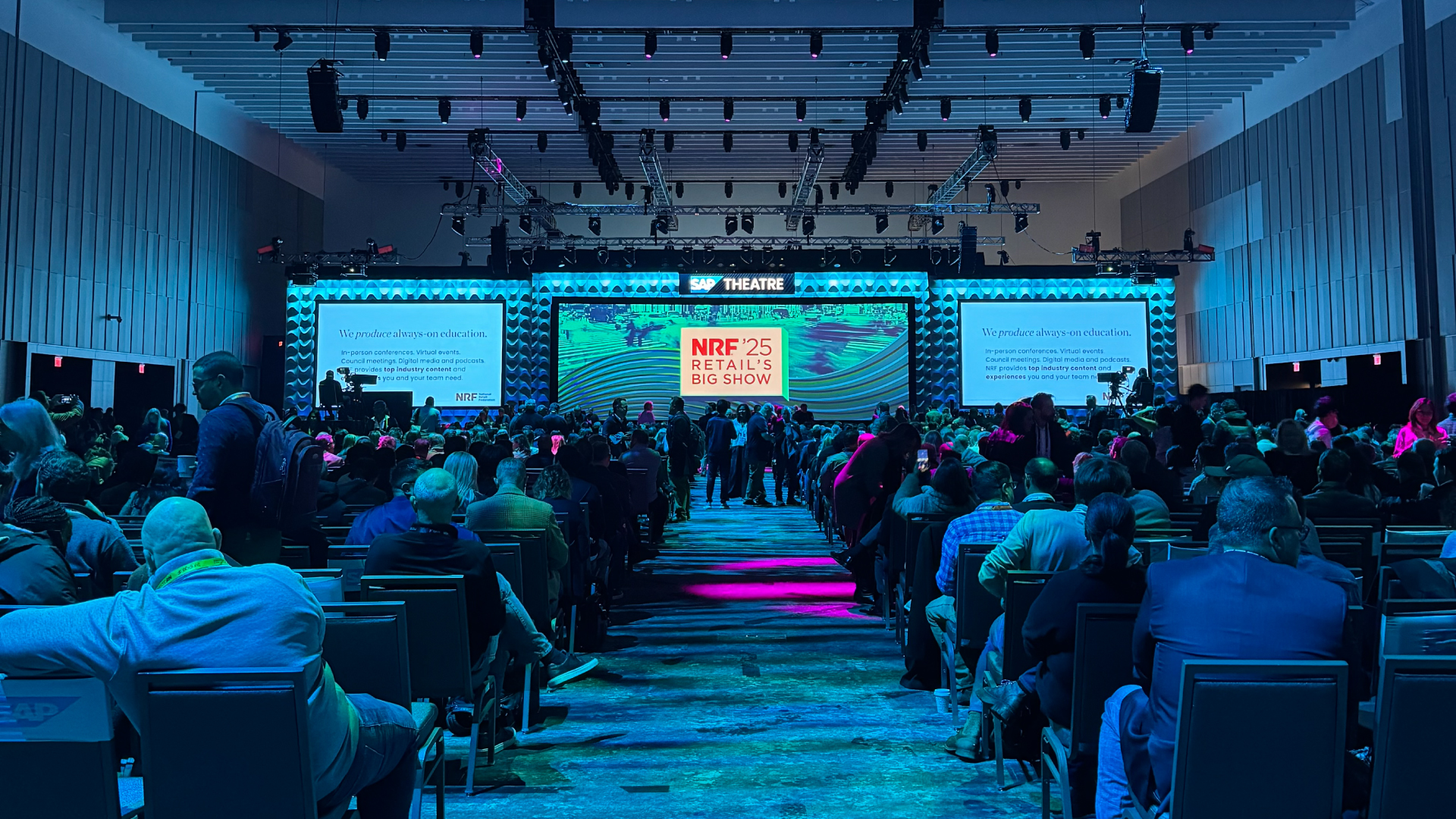Between January 12 and 14, 2025, the National Retail Federation (NRF), the world's largest retail trade association, held NRF 2025: Retail's Big Show in New York. The event highlighted the main trends for the market and brought together various leaders, creators and innovators to discuss issues that will guide the global future of retail.
Gabriela Pavan, our Partner and Director of Experience and Retail Design at Enredo:co, participated intensely in the event, immersed in panels that covered everything from artificial intelligence applied to retail to insights into the behavior of future generations.

Gabriela Pavan, Partner and Director of Experience and Retail Design at Enredo:co
"Frenzy of artificial intelligence"
One of the inevitable trends at the event was the impact of artificial intelligence tools on retail processes. These emerging technologies are facilitating operations that previously required a lot of expense, optimizing methods and transforming the customer experience. One of the main pain points for retailers was customizing the shopping and search experience in a unique way for each consumer. With AIs, this customization is not only possible, but it also helps companies allocate resources to research and innovation.
Pavan highlights Azita Martin's talk. The vice president of NVIDIA, one of the largest and most influential companies in the technology and semiconductor industry, pointed out how AIs have helped one of the world's largest companies to optimize processes and transform the consumer experience without ever losing focus on people as the companies' main asset.
John Furner, president and CEO of Walmart USA and Azita Martin, vice president and general manager of retail and CPG, NVIDIA, at NRF 2025: Retail's Big Show
"The evolution of AI agents is coming to make employees more productive, speaking volumes about the fact that the asset of companies is people and will always be people, even with this frenzy of artificial intelligence." Gabriela Pavan on the panel of Azita Martin, vice president of NVIDIA.
"Retail is a place for humans"
These emerging technologies don't just work in digital spaces. Nowadays, there is a growing concern to improve the shopping experience in the physical environment through the incorporation of technological advances, reflecting the demands of consumers adept at the model omnichannel. These customers, accustomed to a fluid integration between digital and physical channels, want an interconnected consumer journey, even at the traditional point of sale.
One of the NRF panels brought together two major references in physical stores, IKEA and LEGO. Javier Quiñones, CEO of IKEA USA, Martin Urrutia, global head of Retail Experience and Innovation at LEGO Group, mediated by Adam York, head of the Deloitte consultancy in the United States, stressed the importance of unique, stimulating and leading physical spaces, bringing brands to life in terms of materiality, but without ignoring the importance of new technologies and the digital environment.
"Every time I went to the LEGO store in New York, there were queues around the corner and they said that as much as artificial intelligence helps, retail is a human place and that makes a lot of sense." Gabriela Pavan
The panel by Lee Peterson, Executive Vice President of Thought Leadership at WD Partners, was highly sought after by Brazilians attending the event. He presented an innovative vision of the future of retail, and also emphasized the need to balance the efficiency of e-commerce with the depth of sensory experiences provided by physical stores. While agility and convenience are key attributes of online shopping, physical retail must differentiate itself by creating authentic emotional connections with consumers.
In this context, he introduced the concept of "Slow Retail", inspired by the "slow food" movement, suggesting that stores invest in carefully planned environments, personalized service and attractive design to become true destinations, transcending the mere commercial transaction.
Peterson argues that the real competitive advantage of physical retail lies not just in offering products, but in the ability to provide memorable and engaging experiences, something that e-commerce, due to its impersonal nature, cannot replicate. Thus, the future of physical stores will depend on their ability to transform the act of shopping into a meaningful experience, where consumers feel connected not only to the products, but also to the brand and the environment around them.
"It's no longer possible for the I to exist without the we"
On the panel "Retail Future-Proofing 2027 and Beyond", Cassandra Napoli, Head of Marketing and Events Insight at WGSN, presented the trends that will transform retail in the coming years. Her analysis highlighted the need to balance technological advances, social changes and environmental issues to prepare brands for the future.
Among the concepts discussed was "community individuality", which integrates personal and collective needs, reflecting the growing desire for social connections. One relevant piece of data showed that 66% of teenagers aged between 9 and 14 in the US and UK prioritize spending time with friends, reinforcing the importance of these relationships.
"She says that consumers are suspicious of everything that's going on. That we are living in a world of contrasts and contradictions. And that's where the first point comes in: there can no longer be an I without an us. We will have to assume a collective responsibility that is crucial for our future," Gabriela Pavan said of Cassandra Napoli, Head of Marketing and Events Insight at WGSN.
Sustainability was also highlighted, with a focus on adapting to climate change and promoting responsible practices. The concept of "circular health" unites the well-being of the planet and people, prioritizing durable products and sustainable initiatives.
Read the WGSN survey in more depth.
In short, retail by 2027 will be shaped by the integration of advanced technology, sustainability, creativity and purpose, with the challenge of balancing innovation and human impact in a scenario of constant transformation.
These trends have a significant impact on the Brazilian market, requiring companies to adapt quickly to the new dynamics of global retail. Growing digitalization, the importance of the consumer experience and the quest for sustainability challenge businesses to constantly innovate in order to remain competitive. In Brazil, where physical retail still plays a central role, integration between the online and offline worlds is becoming essential to meet the expectations of the omnichannel consumer.
In this scenario, Enredo:co plays a strategic role in helping brands position themselves in an authentic and relevant way, creating narratives that connect emotion and purpose. Through the development of impactful visual identities, engaging communication strategies and immersive brand experiences, we promote a lasting competitive edge, a true Turning Point.
